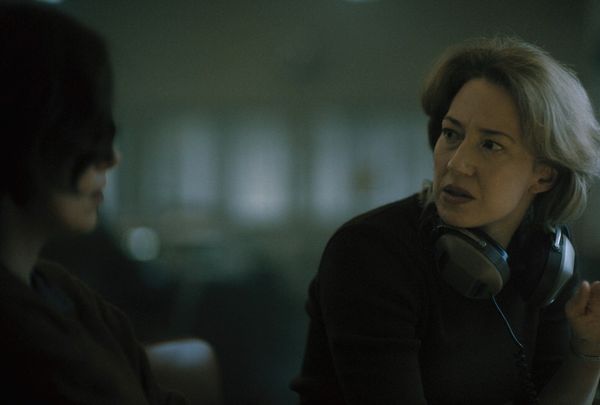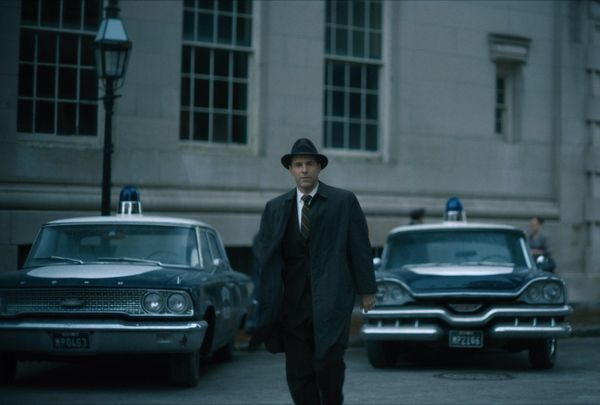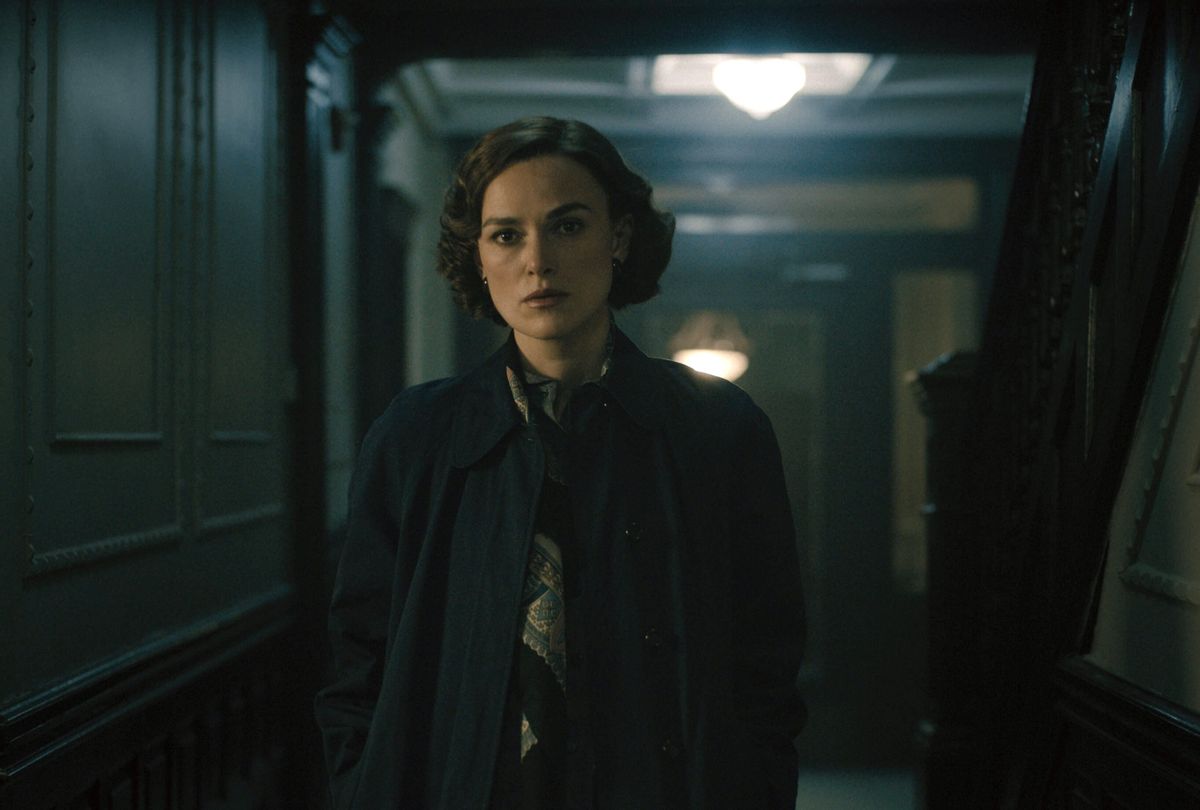It's true crime, but how true is it? As soon as people finish watching Hulu's new movie "Boston Strangler," they may be turning to Google — or even before the movie ends: pulling up their phones and searching. Did the crimes really happen this way? Were the journalists who broke the case really two women in the swinging (and dripping with sexism) early 1960s?
"Boston Strangler" is an investigative drama about the killer of the same name. Known as the most notorious serial killer of Boston, the murderer was responsible for the vicious deaths of at least 11 women (some sources say as many as 15) between 1962 and 1964. Written and directed by Matt Ruskin, the film is a historic noir drama, all shadows and typewriters and trench coats, starring Keira Knightley and Carrie Coon as Loretta McLaughlin and Jean Cole, respectively, the intrepid reporters who covered the story and uncovered connections between the murders the police missed at first.
But did they really? How accurate is the film, and most importantly, why do we keep demanding true details, the more graphic the better, in our tales? Is the cost for our true crime obsession a deadening of our empathy for victims? Salon unpacks what's real about "Boston Stranger" and why some people want still more.
The journalists
In Boston, Loretta McLaughlin and Jean Cole both did write for the Record American. After mergers, the publication would eventually become the Boston Herald. When the film starts, Loretta is mired in writing reviews of toasters, stuck in the limited worldview of working women at the time, but she fights for a chance at an investigative story. She follows the news closely and notes when competitors have scooped her paper. According to Newsweek, Loretta, once a science writer at Harvard University, later became a medical reporter and went to become the editorial page editor of the Globe.
She dedicated a majority of her career to covering the AIDS crisis, at a time when many were turning away from or denying the illness. She criticized U.S. Senator Jesse Helms (R-NC) in the Globe and published an article in 1988 in the New England Journal of Public Policy decrying the federal government's response to AIDS.
 Carrie Coon in "The Boston Strangler" (Hulu/20th Century Studios)Jean started her newspaper career as a "copy boy," working her way up to reporter. When the film begins for Jean, she's in a much different place in her career than Loretta: Jean is working undercover for a story. In real life, she did pose as a nurse's aide in order to write award-winning exposés on elder care. Her hard-hitting investigations also included uncovering organized crime in Boston's entertainment district, and she won Woman of the Year from the New England Women's Press Association in 1953.
Carrie Coon in "The Boston Strangler" (Hulu/20th Century Studios)Jean started her newspaper career as a "copy boy," working her way up to reporter. When the film begins for Jean, she's in a much different place in her career than Loretta: Jean is working undercover for a story. In real life, she did pose as a nurse's aide in order to write award-winning exposés on elder care. Her hard-hitting investigations also included uncovering organized crime in Boston's entertainment district, and she won Woman of the Year from the New England Women's Press Association in 1953.
As in the film, justice was not truly served.
Loretta coined the nickname the Boston Strangler, which happens in the film; earlier, perhaps less catchy, names attached to the killer included "The Mad Strangler of Boston," "Phantom Strangler" and the "Phantom Fiend."
As the film presents, Loretta and Jean were largely the first journalists to suggest that a series of unsolved murders of women, which the police at first believed to be unrelated and which the journalists' editor did dismiss, were connected, committed by the same person (or people).
The killer or killers
Many of the details of the crimes in the film overlap with history, including the sexual assault of numerous women before the killings started in Boston with the murder of 55-year-old Anna Slesers. As in the movie, the grisly signature of the killer was a loopy bow tied around victims' necks with their own stockings.
 Alessandro Nivola in "The Boston Strangler" (Hulu/20th Century Studios)The women who were killed were between the ages of 19 and 85, leading to later speculation that it was more than one killer, as the perpetrator did not seem to have a clear "type." As Crime Museum writes, "It was believed that the women, who all lived alone, knew the attacker and let him in, or that he disguised himself as a repairman, or a delivery man to get the women to voluntarily let him into their apartments.
Alessandro Nivola in "The Boston Strangler" (Hulu/20th Century Studios)The women who were killed were between the ages of 19 and 85, leading to later speculation that it was more than one killer, as the perpetrator did not seem to have a clear "type." As Crime Museum writes, "It was believed that the women, who all lived alone, knew the attacker and let him in, or that he disguised himself as a repairman, or a delivery man to get the women to voluntarily let him into their apartments.
Has "Dahmer," Netflix's splashy series about the serial killer and sex offender, broken our brains?
Albert DeSalvo confessed to the crimes to his attorney, F. Lee Bailey (yes, that Bailey, played gamely in the film by Luke Kirby, the endearing Lenny Bruce of "The Marvelous Mrs. Maisel"). But the lone survivor of the Strangler picked a different man out of a police lineup: George Nassar, who had befriended DeSalvo when the two men both spent time in a state mental hospital.
As in the film, justice was not truly served. DeSalvo was unable to be tried for the Strangler crimes, due to an absence of physical evidence and witness identification. Sent to prison for other offenses, including rape and sexual assault, he was stabbed by a fellow inmate and died in 1973.
The reactions
It's not the most satisfying ending for a complicated, intense case, and reviews of the film have bemoaned its lack of closure, among other so-called issues. The New York Times describes it as "colorless." Many reviews object to the ambitions of the female reporters and their quest to prove themselves at a time when, well, women were writing toaster reviews.
Mashable calls it a "girlbossed Zodiac." Setting aside troubling sentences like Mashable's "Is there a place for female empowerment in true crime?" or this line from a WBUR review describing the film as an "anachronistic girl-power parable about a stubborn podcaster — oops, I mean reporter — who beats the old boys' network," one of the complaints from critics seems to be that the film is not lurid enough.
Want a daily wrap-up of all the news and commentary Salon has to offer? Subscribe to our morning newsletter, Crash Course.
Collider writes, "With its overly primitive script, 'Boston Strangler' might have been considered compelling a few years ago. But now, we've seen it all before, so you have to come up with new and fresh ways to approach a real story." One of the ways "Boston Strangler" does it is by not really showing the crimes onscreen, cutting away before sexual violence.
That blessed absence of visual sexual assault, which comes as a relief to this writer, is not sitting well with many blood-lusty critics. A review which gave the film a D+ wished for instead, a "grimy, no holds barred thriller unafraid of getting some blood on its hands." Another, which now appears to have been wisely deleted, wished the sexual crimes of the film were more sexual.
Seriously? Does true crime have to always be grisly? Has "Dahmer," Netflix's splashy series about the serial killer and sex offender, broken our brains? "Dahmer" was accused, among other things, of glamorizing the violent killer, turning him into a sex symbol, and the show was decried by families of his actual victims. Viewers and reviewers of true crime appear to be clamoring for a particularly type of truth above everything — including every bloody, grisly detail. But maybe what we should be demanding of true crime is empathy for victims above all else, any empathy at all.
"Boston Strangler" is now streaming on Hulu and Disney+. Watch a trailer via YouTube below:



Shares